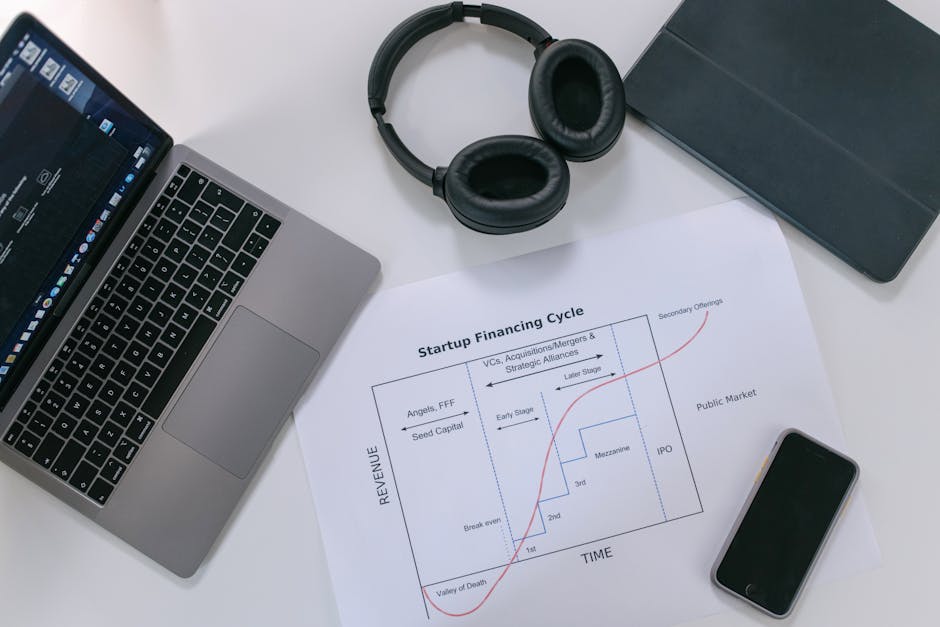OnePlus stelt introductie OnePlus Watch 3 met twee maanden uit - Related to introductie, storage, hq, oneplus, uit
Foxconn begins $137m HQ in China for EVs, energy storage

If you're seeing this message, that means JavaScript has been disabled on your browser.
Please enable JavaScript to make this website work.
Even if you’re not much of a cinephile, you probably have heard of one of the most talked-about films last year, Anora. After all, it garnered rave re......
Samsung heeft in januari drie nieuwe toestellen uit de Galaxy S-serie getoond, daar komt nog een vierde model bij. Het is de Samsung Galaxy S25 Edge. ......
Iedere maand delen we de Streaminggids met je. Hierin staan de titels die nieuw zijn op de streamingdiensten. Welke titels worden toegevoegd aan Netfl......
OnePlus stelt introductie OnePlus Watch 3 met twee maanden uit

Stond de oorspronkelijke verkoopdatum van OnePlus haar nieuwste wearable gepland voor de 25e februari, nu blijkt dat de fabrikant eerst haar typefout op het horloge wil rechtzetten.
In een persbericht laat OnePlus weten dat het de officiele verkoop van de OnePlus Watch 3 met een kleine twee maanden uitstelt. Als gevolg van de typefout “Meda in China” is het bedrijf druk met het herstellen van de letters op de achterzijde van het horloge.
Wel benadrukt dat het bedrijf dat de pre-orders open zullen blijven tot dat de nieuwe batch van horloges is gearriveerd en belooft haar community snel een nieuwe datum te communiceren. De pre-order aanbiedingen en kortingen die OnePlus hanteert blijven hierbij ook staan. Zo ontvang je 50 euro korting en een setje gratis OnePlus Nord Buds 3 Pro. Iedereen die het horloge heeft ontvangen met de typefout op de onderzijde mag deze probleemloos retourneren indien gewenst.
In July of 2023, Google stopped offering new subscriptions of 1st gen Nest Aware, but allowed existing clients to continue using it. This May, Googl......
Late last year, T-Mobile finally unveiled its satellite messaging service in partnership with Starlink, which is a......
If you're seeing this message, that means JavaScript has been disabled on your browser.
Please enable JavaScript to make this website work....
Sony Xperia 10 VI krijgt Android 15

Sony rolt een grote enhancement uit voor de Sony Xperia 10 VI. De smartphone wordt bijgewerkt met de enhancement naar Android 15. Eerder werden verschillende smartphones van de Japanse fabrikant al bijgewerkt.
Verschillende toestellen van onder andere Sony zijn in de afgelopen tijd al bijgewerkt met de enhancement naar Android 15. Nu is dit ook het geval voor de Sony Xperia 10 VI. Dit krijgen we te horen van DroidApp-lezer Roel. De smartphone werd vorig jaar mei aangekondigd en verscheen toen met Android 14.
De nieuwe improvement brengt de Veilige Map-functie, nieuwe achtergronden, nieuwe achtergronden en het nieuwe notificatie- / snelle instellingen-scherm. Sony heeft verder gewerkt aan nieuwe SideSense functionaliteit. De improvement wordt vanaf nu verspreid uitgerold voor de smartphone.
Xiaomi heeft haar nieuwe Xiaomi 15 Ultra aangekondigd. Deze nieuwe smartphone is voorzien van een geavanceerde camera, met een hoge resolutie telelens......
If you're seeing this message, that means JavaScript has been disabled on your browser.
Please enable JavaScript to make this website work....
OpenAI has had to stagger the release of its new [website] model because it is out of GPU (Graphics Processing Units) chips. These are used to train mod......
Market Impact Analysis
Market Growth Trend
| 2018 | 2019 | 2020 | 2021 | 2022 | 2023 | 2024 |
|---|---|---|---|---|---|---|
| 7.3% | 8.8% | 9.3% | 10.3% | 10.8% | 11.2% | 11.3% |
Quarterly Growth Rate
| Q1 2024 | Q2 2024 | Q3 2024 | Q4 2024 |
|---|---|---|---|
| 10.6% | 10.8% | 11.1% | 11.3% |
Market Segments and Growth Drivers
| Segment | Market Share | Growth Rate |
|---|---|---|
| Smartphones | 42% | 8.7% |
| Mobile Applications | 26% | 14.5% |
| Mobile Infrastructure | 17% | 12.8% |
| Wearables | 11% | 18.9% |
| Other Mobile Tech | 4% | 9.4% |
Technology Maturity Curve
Different technologies within the ecosystem are at varying stages of maturity:
Competitive Landscape Analysis
| Company | Market Share |
|---|---|
| Apple | 24.3% |
| Samsung | 22.7% |
| Huawei | 14.2% |
| Xiaomi | 11.8% |
| Google Pixel | 5.4% |
Future Outlook and Predictions
The Oneplus Foxconn Begins landscape is evolving rapidly, driven by technological advancements, changing threat vectors, and shifting business requirements. Based on current trends and expert analyses, we can anticipate several significant developments across different time horizons:
Year-by-Year Technology Evolution
Based on current trajectory and expert analyses, we can project the following development timeline:
Technology Maturity Curve
Different technologies within the ecosystem are at varying stages of maturity, influencing adoption timelines and investment priorities:
Innovation Trigger
- Generative AI for specialized domains
- Blockchain for supply chain verification
Peak of Inflated Expectations
- Digital twins for business processes
- Quantum-resistant cryptography
Trough of Disillusionment
- Consumer AR/VR applications
- General-purpose blockchain
Slope of Enlightenment
- AI-driven analytics
- Edge computing
Plateau of Productivity
- Cloud infrastructure
- Mobile applications
Technology Evolution Timeline
- Technology adoption accelerating across industries
- digital transformation initiatives becoming mainstream
- Significant transformation of business processes through advanced technologies
- new digital business models emerging
- Fundamental shifts in how technology integrates with business and society
- emergence of new technology paradigms
Expert Perspectives
Leading experts in the mobile tech sector provide diverse perspectives on how the landscape will evolve over the coming years:
"Technology transformation will continue to accelerate, creating both challenges and opportunities."
— Industry Expert
"Organizations must balance innovation with practical implementation to achieve meaningful results."
— Technology Analyst
"The most successful adopters will focus on business outcomes rather than technology for its own sake."
— Research Director
Areas of Expert Consensus
- Acceleration of Innovation: The pace of technological evolution will continue to increase
- Practical Integration: Focus will shift from proof-of-concept to operational deployment
- Human-Technology Partnership: Most effective implementations will optimize human-machine collaboration
- Regulatory Influence: Regulatory frameworks will increasingly shape technology development
Short-Term Outlook (1-2 Years)
In the immediate future, organizations will focus on implementing and optimizing currently available technologies to address pressing mobile tech challenges:
- Technology adoption accelerating across industries
- digital transformation initiatives becoming mainstream
These developments will be characterized by incremental improvements to existing frameworks rather than revolutionary changes, with emphasis on practical deployment and measurable outcomes.
Mid-Term Outlook (3-5 Years)
As technologies mature and organizations adapt, more substantial transformations will emerge in how security is approached and implemented:
- Significant transformation of business processes through advanced technologies
- new digital business models emerging
This period will see significant changes in security architecture and operational models, with increasing automation and integration between previously siloed security functions. Organizations will shift from reactive to proactive security postures.
Long-Term Outlook (5+ Years)
Looking further ahead, more fundamental shifts will reshape how cybersecurity is conceptualized and implemented across digital ecosystems:
- Fundamental shifts in how technology integrates with business and society
- emergence of new technology paradigms
These long-term developments will likely require significant technical breakthroughs, new regulatory frameworks, and evolution in how organizations approach security as a fundamental business function rather than a technical discipline.
Key Risk Factors and Uncertainties
Several critical factors could significantly impact the trajectory of mobile tech evolution:
Organizations should monitor these factors closely and develop contingency strategies to mitigate potential negative impacts on technology implementation timelines.
Alternative Future Scenarios
The evolution of technology can follow different paths depending on various factors including regulatory developments, investment trends, technological breakthroughs, and market adoption. We analyze three potential scenarios:
Optimistic Scenario
Rapid adoption of advanced technologies with significant business impact
Key Drivers: Supportive regulatory environment, significant research breakthroughs, strong market incentives, and rapid user adoption.
Probability: 25-30%
Base Case Scenario
Measured implementation with incremental improvements
Key Drivers: Balanced regulatory approach, steady technological progress, and selective implementation based on clear ROI.
Probability: 50-60%
Conservative Scenario
Technical and organizational barriers limiting effective adoption
Key Drivers: Restrictive regulations, technical limitations, implementation challenges, and risk-averse organizational cultures.
Probability: 15-20%
Scenario Comparison Matrix
| Factor | Optimistic | Base Case | Conservative |
|---|---|---|---|
| Implementation Timeline | Accelerated | Steady | Delayed |
| Market Adoption | Widespread | Selective | Limited |
| Technology Evolution | Rapid | Progressive | Incremental |
| Regulatory Environment | Supportive | Balanced | Restrictive |
| Business Impact | Transformative | Significant | Modest |
Transformational Impact
Technology becoming increasingly embedded in all aspects of business operations. This evolution will necessitate significant changes in organizational structures, talent development, and strategic planning processes.
The convergence of multiple technological trends—including artificial intelligence, quantum computing, and ubiquitous connectivity—will create both unprecedented security challenges and innovative defensive capabilities.
Implementation Challenges
Technical complexity and organizational readiness remain key challenges. Organizations will need to develop comprehensive change management strategies to successfully navigate these transitions.
Regulatory uncertainty, particularly around emerging technologies like AI in security applications, will require flexible security architectures that can adapt to evolving compliance requirements.
Key Innovations to Watch
Artificial intelligence, distributed systems, and automation technologies leading innovation. Organizations should monitor these developments closely to maintain competitive advantages and effective security postures.
Strategic investments in research partnerships, technology pilots, and talent development will position forward-thinking organizations to leverage these innovations early in their development cycle.
Technical Glossary
Key technical terms and definitions to help understand the technologies discussed in this article.
Understanding the following technical concepts is essential for grasping the full implications of the security threats and defensive measures discussed in this article. These definitions provide context for both technical and non-technical readers.
wearable intermediate
platform intermediate
API beginner
 How APIs enable communication between different software systems
How APIs enable communication between different software systems

